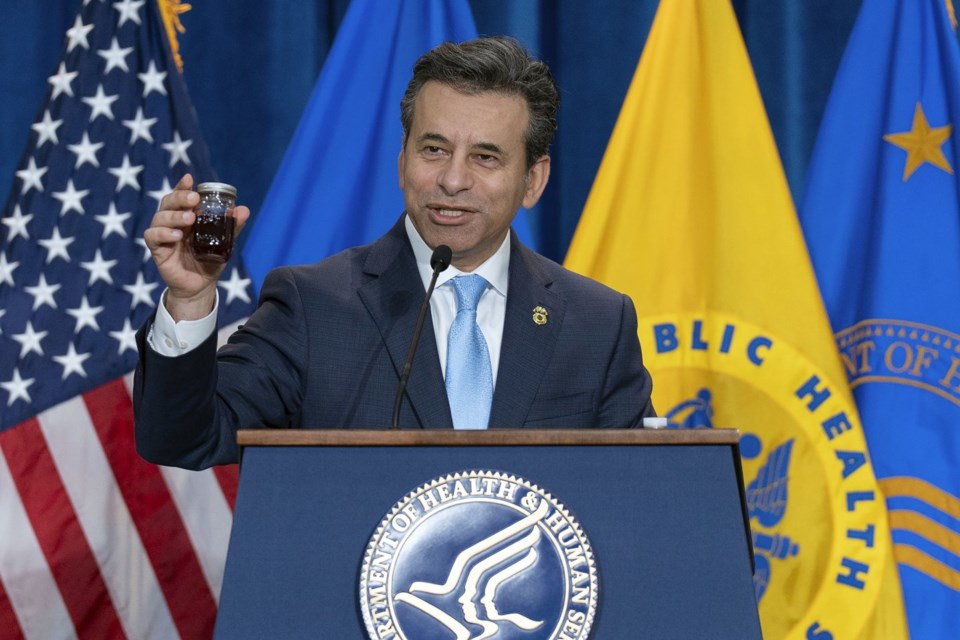WASHINGTON (AP) — U.S. regulators will begin offering faster reviews to new medicines that administration officials deem as promoting “the health interests of Americans,” under a new initiative announced Tuesday.
Food and Drug Administration Commissioner Marty Makary said the agency will aim to review select drugs in one to two months. FDA's long-standing accelerated approval program generally issues decisions in six months for drugs that treat life-threatening diseases. Regular drug reviews take about 10 months.
Since arriving at the FDA in April, Makary has repeatedly told FDA staff they need to “challenge assumptions” and rethink procedures. In a medical journal commentary published last week, Makary suggested the agency could conduct “rapid or instant reviews," pointing to the truncated process used to authorize the first COVID-19 vaccines under Operation Warp Speed.
For the new program, the FDA will issue a limited number of “national priority vouchers” to companies “aligned with U.S. national priorities,” the agency said in a statement. The special designation will give the selected companies access to extra FDA communications, streamlined staff reviews and the ability to submit much of their product information in advance.
Speeding up drug approvals has long been a priority of the pharmaceutical industry, which has successfully lobbied Congress to create a variety of special programs and pathways for faster reviews.
Many aspects of the plan announced Tuesday overlap with older programs. But the broad criteria for receiving a voucher will give FDA officials unprecedented discretion in deciding which companies can benefit from the fastest reviews.
"The ultimate goal is to bring more cures and meaningful treatments to the American public,” Makary said in a statement.
Makary said he will prioritize vouchers for companies pursuing products that address health crises, deliver “innovative cures” or address other unmet public health needs.
An administration official said the program wouldn't change FDA approval standards.
“Without altering how new treatments are evaluated — just when — the FDA’s new voucher program is a common sense reform that maintains rigorous clinical standards while streamlining needless bureaucracy," Kush Desai, a White House spokesperson, wrote in an emailed statement Tuesday.
Separate from this week's announcement, Makary recently suggested the FDA should be willing to ease its scientific requirements for certain drugs targeting rare conditions. In such cases, the agency could consider waiving its requirement for randomized studies, in which researchers track patients over time to evaluate drug safety and effectiveness. Such trials are generally considered the gold standard of medical research, though the FDA has increasingly been willing to accept smaller, less-definitive studies for rare or life-threatening diseases.
In several recent cases, the FDA has faced criticism for approving drugs based on preliminary data that didn't ultimately show benefits for patients.
The push to rapidly accelerated drug approvals is the opposite approach that Makary and his boss, Health Secretary Robert F. Kennedy Jr., have taken on vaccines.
Promising a “return to gold-standard science,” Kennedy previously announced that all new vaccines would have to be compared to placebo, or a dummy shot, to win approval. Kennedy and Makary also have announced a stricter policy on seasonal updates to COVID-19 shots, saying they will have to undergo new testing before they can be approved for use in healthy children and most adults.
___
The Associated Press Health and Science Department receives support from the Howard Hughes Medical Institute’s Science and Educational Media Group and the Robert Wood Johnson Foundation. The AP is solely responsible for all content.
Matthew Perrone, The Associated Press




